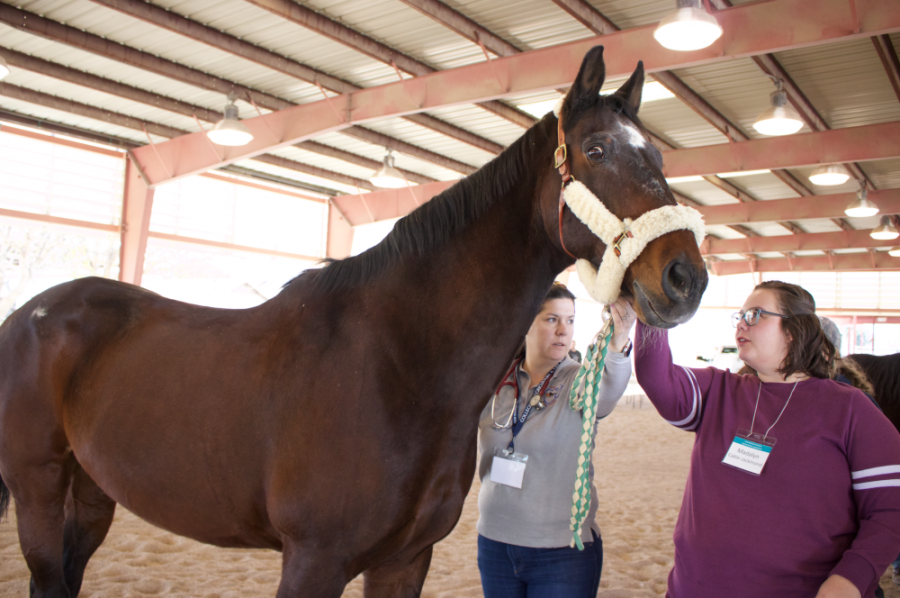When you own a horse, there is no horsing around with equine healthcare. The University of Arizona Cooperative Extension Equine Program hosted the third annual Southern Arizona Equine Health Care Symposium to bring UA resources to Tucson horse owners and promote horse health.
The symposium was held at the UA Campus Agricultural Center on Jan. 26. The event included veterinary speakers, horse volunteer groups and live demonstrations with horses.
RELATED: Student profile: This isn’t her first rodeo
Barbara Page, a retired large animal and wildlife veterinarian who “worked 40 years in the field,” attended the symposium to represent her firm. Page worked at a table showing horse bone models and basic equine equipment.
She encouraged horse owners to attend workshops to learn how to better care for their animals.
“There is so much to know about a horse,” Page said. “No one, not even a veterinarian knows everything about them.”
To help educate local horse owners, the UA Cooperative Extension Equine Program had thirteen lectures and five live horse demonstrations led by eleven different veterinarians.
The topics included training, food, behavior and anatomy.
“You can come learn to care for your horse and its problem, if it has a problem,” Page said.
New horse owner Cindy Liu attended the symposium to learn more about equine health and better care for her first horse.
“I’m surprised by how much work goes into caring for the horse,” Liu said. “I will use all the information I learned today.”
Not everyone in attendance was there to learn about horses. Lesley Rich, executive director of Therapeutic Riding of Tucson, a beneficiary of the symposium, helped get volunteers for her organization.
TROT provides therapy for over 60 children and adults living with autism and veterans with post-traumatic stress disorder or traumatic brain injuries.
“Horses have a very special connection with humans,” Rich said. “People who get to work with horses establish confidence, strength and mobility.”
TROT needs volunteers to help some of the patients to stay upright on and steer the horse, according to Rich.
At TROT, Rich and volunteers take care of the 11 horses that work there.
RELATED: Rillito Park Foundation teams up with UA to create internship opportunities
“It seems like having a horse could be really easy, but you have to remember all of the pieces to taking care of them, like: How do you feed them? What are their behaviors?” Rich said.
Horses are harder to take care of than typical house pets like dogs and cats, partially due to how big they are, according to Rich.
For more information on horse healthcare and handling, check out the University of Arizona Equine Sciences Program’s Facebook page, which features UA students showing proper horse care as well as news for the UA equine program.
Follow Leia Linn on Twitter









